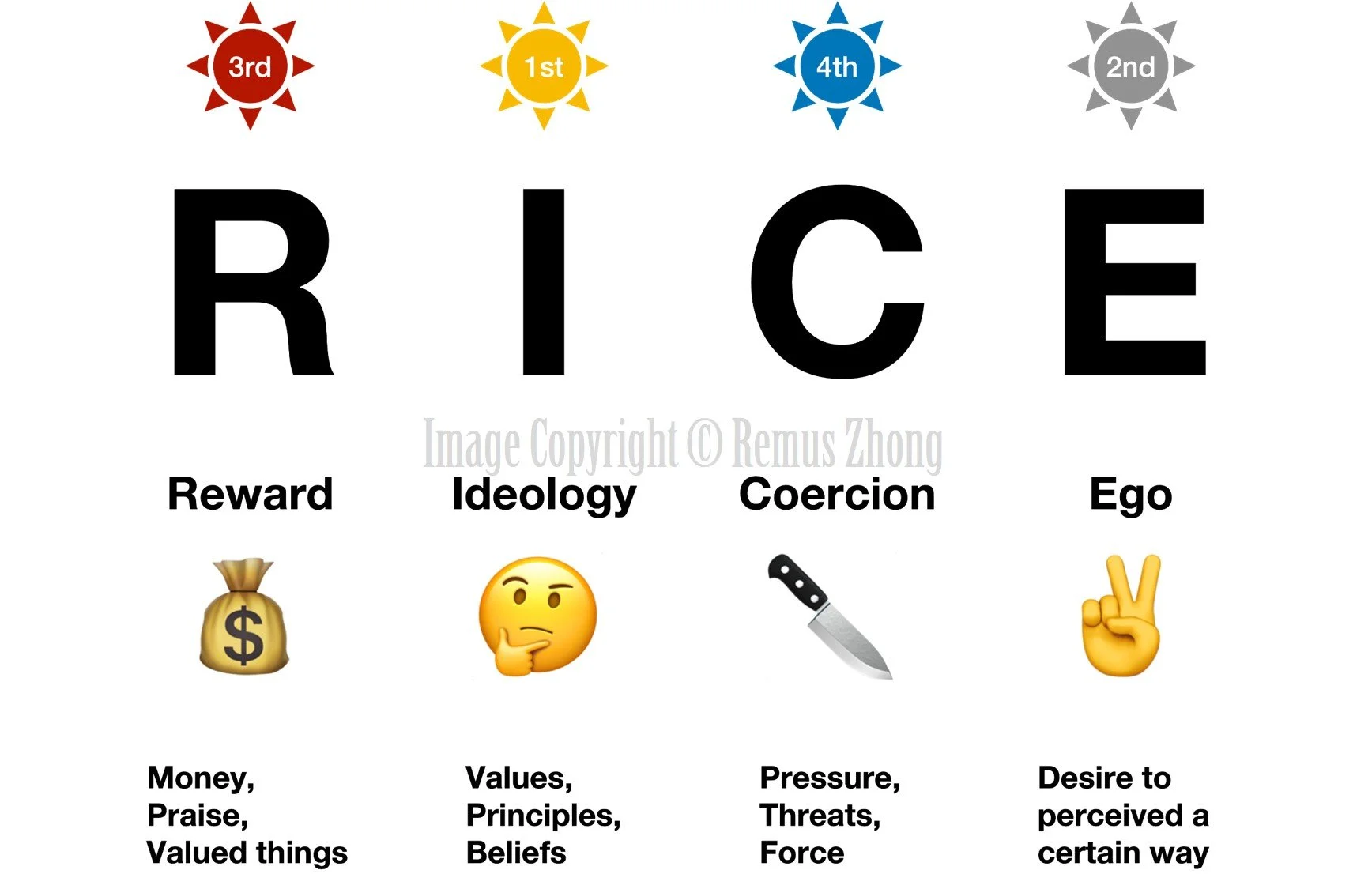RICE is an acronym about 4 things that drive motivation:
Reward.
Ideology.
Coercion.
Ego.
Reward is fairly self-explanatory. Anything that a person determines to be fulfilling can be considered a reward, be it actual money, time to themselves, satisfaction, and so on.
Ideology is what a person values, believes in, and, often, informs their sense of purpose and direction. For example, if a person places a high value on honesty, then they would want to tell the truth or, at least, not lie.
Coercion is the use of pressure, even force, to get someone to do something. Most people resist and abhor this when it’s done to them. They may comply, but only to relieve that pressure.
Ego is a person’s image or perception of themselves that they wish to upkeep, not only for themselves, but in front of others as well.
Of the four, Ideology is the most powerful drive, followed by Ego, then Reward, and, finally, Coercion.
Coercion, once used, will break trust and increase suspicion and wariness. It frequently causes irreparable damage to a relationship and should not be used lightly.
I find RICE to be a useful acronym to keep in the back of my mind for a variety of things. Since I believe that we perform actions for specific reasons, it helps me to decipher a person’s reasons for doing or saying certain things.
While I may not agree with their actions, I can at least have an insight on why they may be doing something.
This gives me some leverage when negotiating with them or convincing them of something.
I’ve found this useful as an educator, when I’m doing business - buying and selling, as well as in various relationships that I have.
Saying the right thing, at the right time, in the right way is a very powerful thing.
It certainly opens up the possibility of manipulation, but, hopefully, you won’t have to resort to that.


